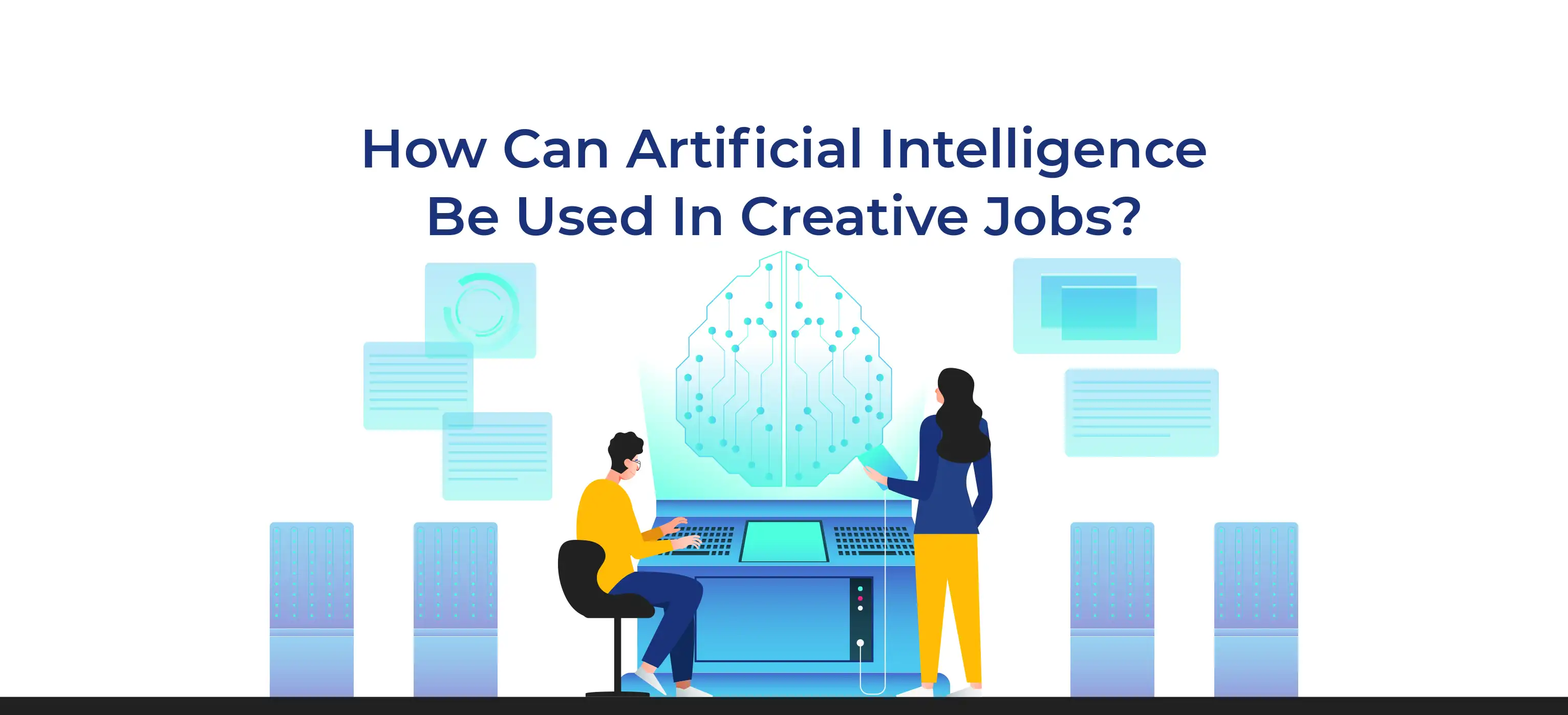 Jothi Kumar
Dec 05, 2024
Jothi Kumar
Dec 05, 2024

As artificial intelligence (AI) continues to advance, its influence extends beyond traditional industries, penetrating the realm of human resources (HR). AI is reshaping the HR landscape, automating various job roles and processes. From recruitment and talent acquisition to performance management and learning and development, AI is revolutionizing how HR functions.
This blog will explore the HR jobs that AI will likely take over, examining the benefits, challenges, and future implications of this transformation.
Check out: What is Generative AI And How Does it Work?
AI is making significant strides in revolutionizing the field of HR. By leveraging AI technologies, HR processes are becoming more efficient, accurate, and cost-effective. From recruitment and talent acquisition to performance management and learning and development, AI transforms HR functions.
Artificial Intelligence (AI) has had a transformative impact on nearly all aspects of our society, and the human resources (HR) field is no exception. Here are some ways AI is currently influencing HR roles:
AI is revolutionizing the recruitment and talent acquisition process within HR. With the help of AI, organizations can streamline and optimize their hiring strategies, resulting in improved outcomes.
AI-driven systems are transforming the resume screening and applicant tracking process. These systems analyze resumes and applications, automatically identifying qualified candidates based on predefined criteria. By automating this initial screening, HR professionals can save time and focus on engaging with top candidates.
AI-driven chatbots and virtual assistants are gaining prominence in the HR field, increasing their utilization. These intelligent systems engage with candidates during the initial stages of the recruitment process, answering their questions, providing information about the organization and job role, and guiding them through the application process. This enhances the candidate experience by offering prompt and personalized support while freeing up HR personnel to focus on more strategic tasks.
Check out: Jobs Lost To Automation Statistics
Performance management and data analytics are critical components of HR functions, and AI plays a significant role in enhancing these areas. Organizations can gain valuable insights, make insightful decisions, and optimize their workforce by leveraging AI technologies.
AI-powered performance evaluation tools provide organizations with objective and data-driven employee performance assessments. These tools utilize machine learning algorithms to analyze various performance metrics, feedback data, and other relevant factors.
By removing biases and subjectivity, AI helps ensure fair and accurate evaluations. Additionally, AI tools can provide employees with continuous feedback and personalized coaching, enabling them to enhance their performance and development.
AI-powered predictive analytics enables HR professionals to anticipate future workforce needs and make informed decisions. By analyzing historical data, AI algorithms can identify patterns, trends, and potential skill gaps within the workforce. This allows organizations to proactively plan for recruitment, training, and talent retention strategies.
Predictive analytics also help optimize resource allocation, ensuring that the right people are in the right roles at the right time. By leveraging AI in workforce planning, organizations can achieve greater efficiency, productivity, and agility in managing their human capital.
Check out: Jobs Most at Risk of Being Replaced by AI
Learning and development (L&D) are undergoing a significant transformation with artificial intelligence (AI) integration. AI technologies are revolutionizing how employees acquire knowledge and skills, making the learning experience more personalized, engaging, and effective. Through AI-based personalized learning platforms, employees can access tailored training programs catering to their needs and learning styles.
Additionally, virtual reality (VR) and augmented reality (AR) are being utilized to create immersive training environments, allowing employees to practice skills in realistic scenarios. The transformation of L&D through AI empowers organizations to enhance employee performance, improve knowledge retention, and foster continuous growth and development.
Check out: Industries That Will Be Most Affected By AI
Employee engagement can be gauged by anonymously surveying employees and analyzing their sentiments. HR can use these tools to identify factors that negatively impact employee morale and address them proactively.
Using AI effectively in HR comes with a number of challenges that organizations must navigate. Here are some of the main challenges:
Check out: How AI Will Impact The Future Of Work And Life?
The advent of artificial intelligence (AI) is reshaping the landscape of HR jobs, creating both opportunities and challenges. While AI automation is expected to replace certain routine and repetitive administrative tasks, it is also set to augment HR roles that require strategic decision-making and human-centric skills.
HR professionals will need to adapt and embrace AI technologies to remain relevant in the evolving workplace. The future of HR jobs lies in leveraging AI for data-driven insights, predictive analytics, and enhancing employee experiences. By upskilling and reskilling, HR professionals can position themselves as valuable strategic partners in leveraging AI's potential for organizational success.
Artificial Intelligence (AI) is reshaping the nature of many jobs, including those in Human Resources (HR). AI may replace some jobs, particularly those requiring a high level of repetition, but it is more likely to redefine others. Here are some predictions on the future of HR jobs in the AI era:
Check out: How to Get Started as an AI Developer?
Artificial Intelligence (AI) and AI-based tools like ChatGPT are being increasingly used in Human Resources (HR) for various tasks, enhancing efficiency, and adding strategic value to the department. AI is revolutionizing the field of human resources (HR), automating tasks, and transforming processes. While AI may replace certain HR jobs, there are abundant opportunities for HR professionals to embrace and leverage AI technologies.
By upskilling, adapting to changes, and focusing on strategic initiatives, HR professionals can harness the power of AI to drive efficiency, enhance decision-making, and create better employee experiences. The future of HR lies in a harmonious coexistence of AI and human expertise, where AI complements and empowers HR professionals to achieve organizational success.
Here is the list of other major locations where Edoxi offers Artificial Intelligence Course
Artificial Intelligence Course in Dubai | Artificial Intelligence Course in Qatar

Software and IT Trainer
Jothi is a Microsoft-certified technology specialist with more than 12 years of experience in software development for a broad range of industry applications. She has incomparable prowess in a vast grouping of software development tools like Microsoft Visual Basic, C#, .NET, SQL, XML, HTML, Core Java and Python.
Jothi has a keen eye for UNIX/LINUX-based technologies which form the backbone of all the free and open-source software movement. As a Big data expert, Jothi has experience using several components of the Hadoop ecosystem, including Hadoop Map Reduce, HDFS, HIVE, PIG, and HBase. She is well-versed in the latest technologies of information technology such as Data Analytics, Data Science and Machine Learning.